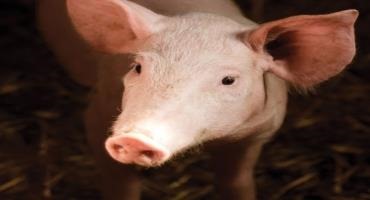Animal health officials confirmed a devastating disease of swine has spread into Haiti.
U.S. Department of Agriculture officials announced in September that African swine fever had been detected in an outbreak in Haiti near the border with the Dominican Republic, which department officials found unsurprising considering the outbreaks this year in the Dominican Republic. The countries comprise Hispaniola, the most populous island in the West Indies.
The USDA’s National Veterinary Services Laboratories identified the infection through a cooperative testing program, and Haiti’s chief veterinary officer reported the results to the World Organisation for Animal Health (OIE). USDA officials also had initially confirmed the presence of the ASF virus this July in the Dominican Republic, and subsequent investigation indicated pigs in that country had been infected since at least April.

The report filed with the OIE indicates the outbreak in Haiti began in late August and killed 234 swine. Officials in Haiti indicated their immediate response had included surveillance and quarantines, and they planned further responses, including restrictions on transportation of swine within the country, destruction of animal products, and swine depopulation.
Haiti’s agriculture ministry announced on Aug. 9—prior to the detection of ASF in the country—that agency officials had been preparing for the incursion of ASF. The country has about 800,000 pigs and had been free of ASF since 1978.
ASF is a highly contagious and deadly hemorrhagic disease of domestic and wild pigs, capable of killing entire herds. Viable virus can spread through live animals, carcasses, pork products, contaminated feed, and fomites, OIE information states.
Signs of infection can include sudden deaths with few clinical signs, fever, vomiting, diarrhea, anorexia, listlessness, blue discoloration of skin, and reddened skin on the tips of the ears, tails, and feet, and ventral aspects of the chest and abdomen
The OIE and the Food and Agriculture Organization of the United Nations are collaborating on a plan to control the disease, and a document published by the organizations states that ASF is a global threat, it has never been so widespread, and the national and regional challenges to control it will require long-term commitments.
The ASF virus has historically been found in sub-Saharan Africa, and the disease spread in the 1950s through 1980s to countries in Europe, South America, and the Caribbean, according to the FAO.
In 2007, the virus rapidly spread among pigs in the Caucasus and Russia, and it since has spread to other countries in Europe and Asia. In 2018, it emerged in China, which is the world’s largest pork producer.
USDA officials responded to ASF’s emergence in Haiti with reassurances that pork and pork products from Haiti and the Dominican Republic were already barred from entering the U.S. because of restrictions related to the risk from classical swine fever. The USDA Animal and Plant Health Inspection Service increased surveillance and safeguards in both countries after ASF was detected in the Dominican Republic, and agency officials are working with U.S. Customs and Border Protection and the U.S. swine industry to keep ASF from entering the U.S.
Click here to see more...